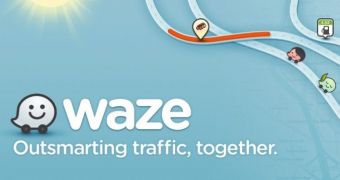Last year, when Google acquired Waze, the Internet giant paid $1.15 billion (€838 million) for the Israeli company. Had the situation been a little different, however, the entire purchase might not have happened at all.
Noam Bardin, CEO and co-founder of Waze, posted a blog on LinkedIn, in which he discusses the deal and more.
First and foremost, this is the first time that the official price tag for Waze has been revealed – $1.15 billion (€838 million). Media estimates at the time indicated that Google might have paid somewhere between $1.1 billion (€802 million) to $1.3 billion (€948 million), although no one seemed to have had access to the right sum.
Furthermore, Bardin discussed the context in which the deal was made, hinting that had things been different, Waze would still be independent and not a part of Google.
“One of Waze’s mistakes was the valuation of it’s a round which significantly diluted the founders. Perhaps, had we held control of the company, as the founders of Facebook, Google, Oracle or Microsoft had, Waze might still be an independent company today,” Bardin writes.
Basically, he hints that the pressure from investors eventually led to Waze agreeing to Google’s offer. The company had raised $12 million (€8.74 million) in a Series A funding round in 2008, and another $30 million (€21.87 million) in 2011.
“When Google came out with free Turn-by-Turn navigation, stealing our thunder, the response of our Israeli investors was that we should focus on Singapore or Romania instead of the US… to avoid the inevitable confrontation. We had a moment of fear and took our eyes off the ball, costing us valuable time,” Bardin explains the situation within the company.
Despite these bits, Bardin’s LinkedIn blog post explains the path taken by Waze over the years and how difficult it is for a successful startup from a country such as Israel to rival and overtake companies in the United States.
Since the ink on the contract between Google and Waze has dried, the two companies have started to intertwine their services. For instance, Google lent some of its search knowledge to help the Waze apps, while Google Maps is now featuring real-time incidents in several countries.
The relationship between the two companies will certainly continue to grow over the coming years, as it usually happens with most products that Google acquires.

 14 DAY TRIAL //
14 DAY TRIAL //